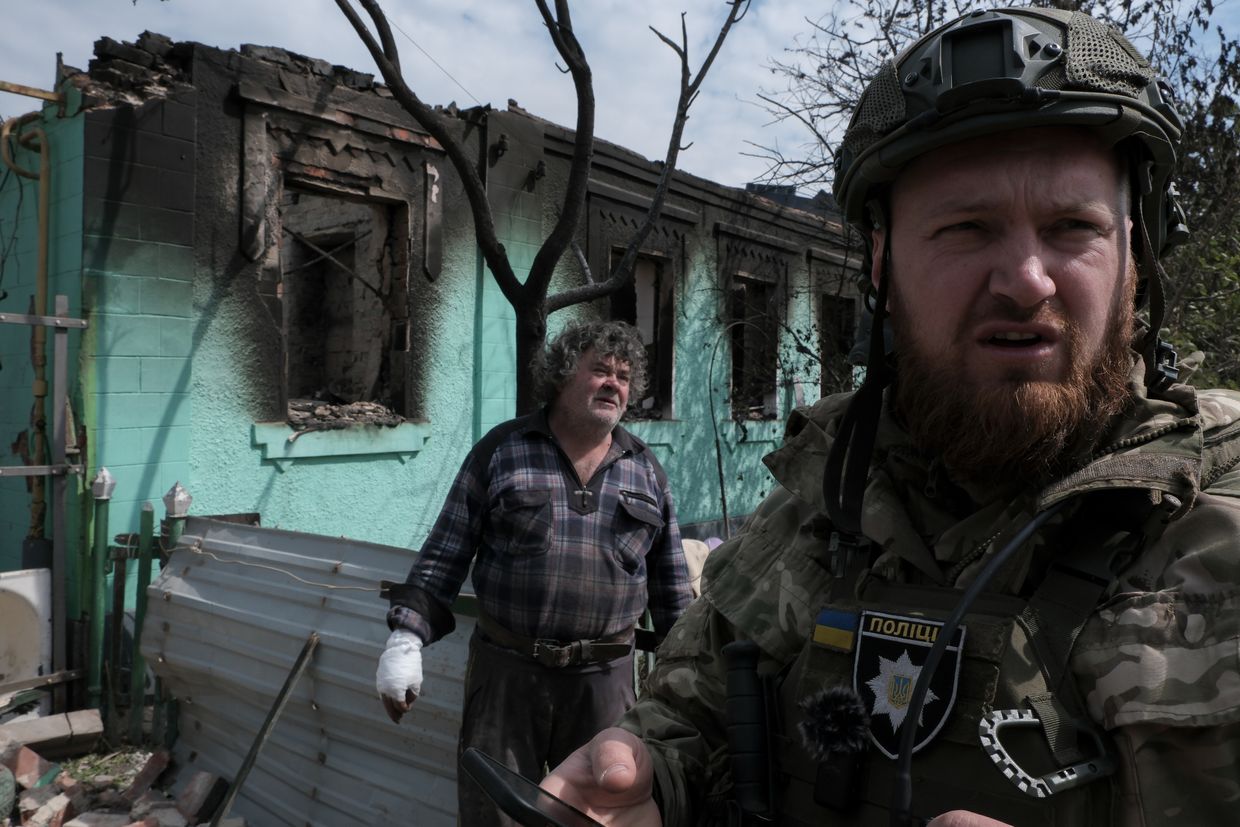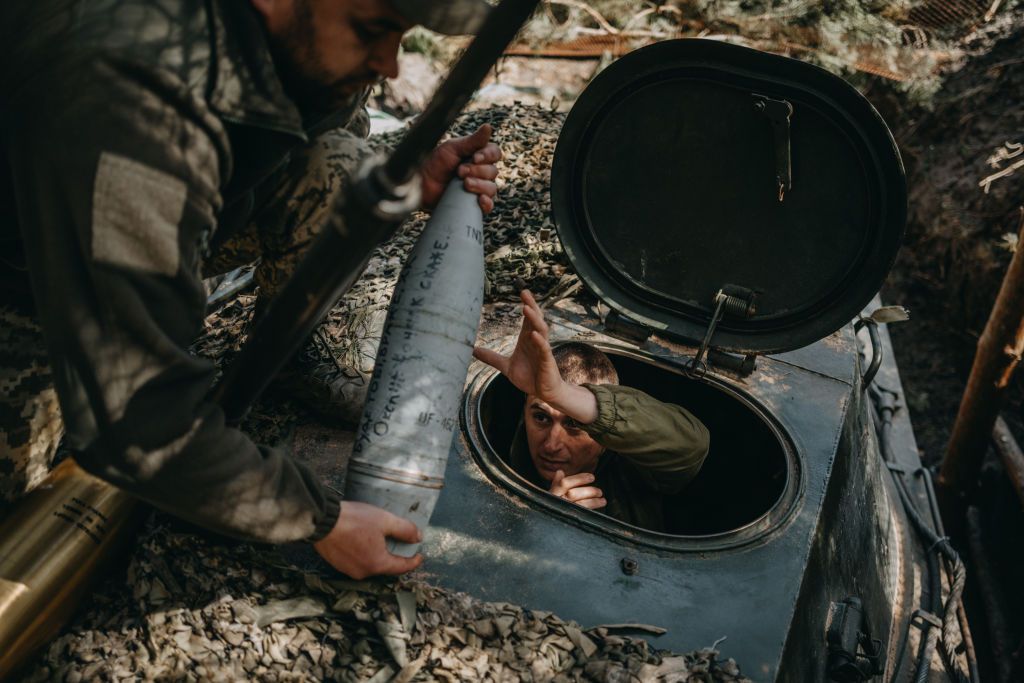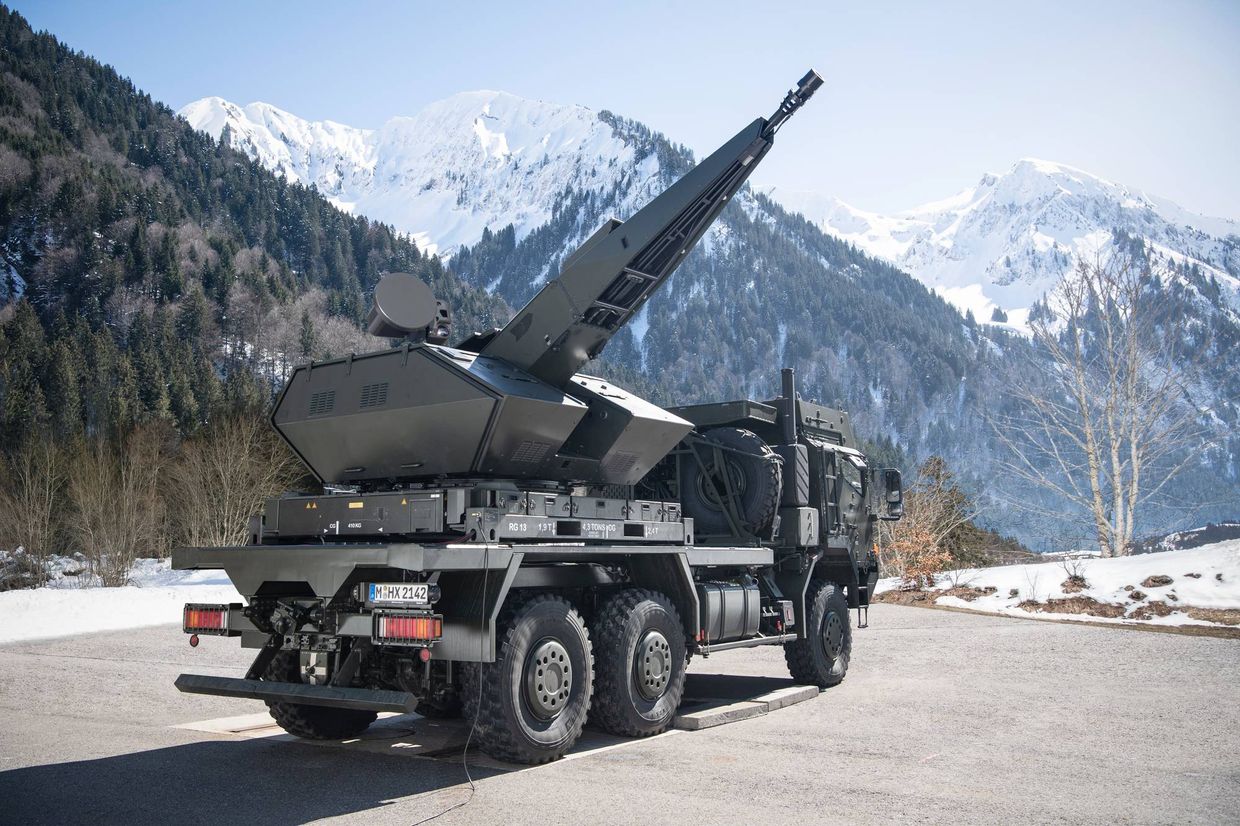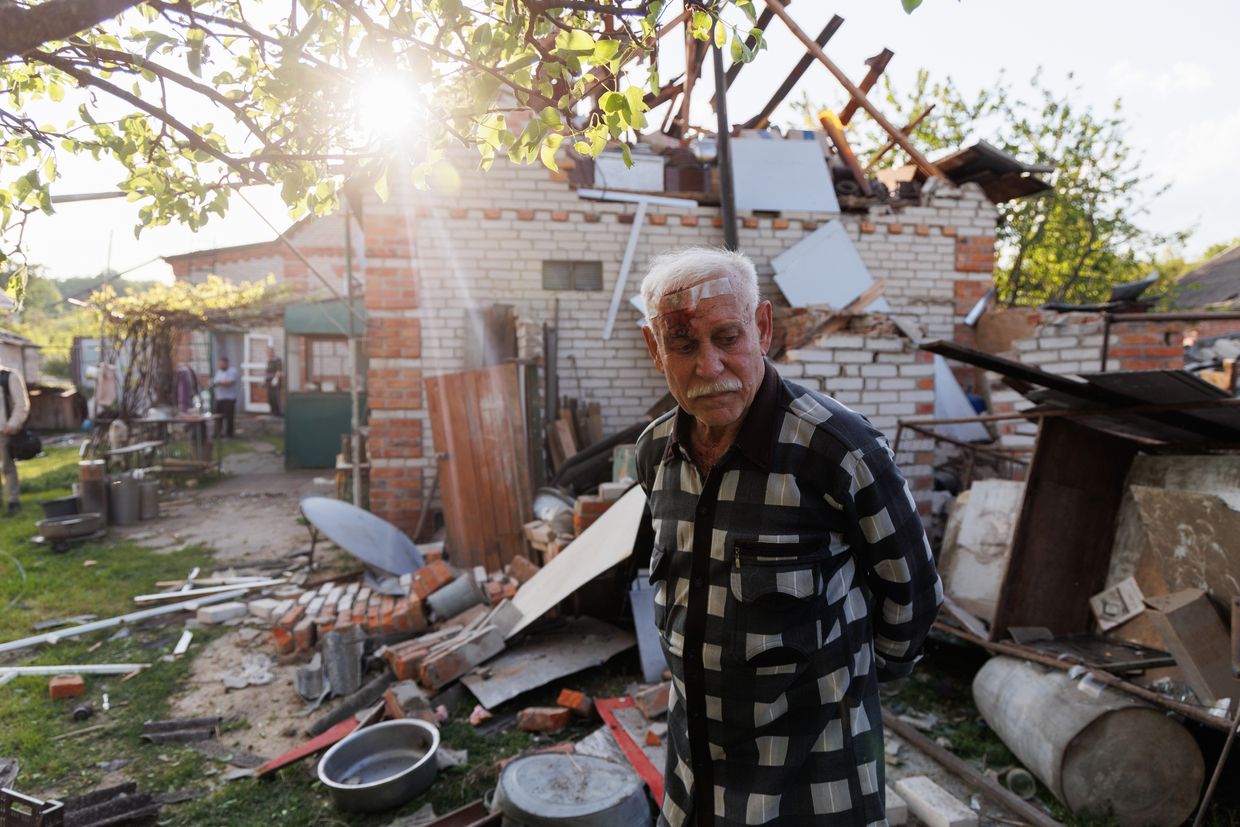Ukraine war latest: Russian missile ship Tsiklon struck in occupied Crimea, Ukraine's military says

Key developments on May 21:
- General Staff confirms Russian missile ship Tsiklon struck in occupied Crimea
- EU Council approves using Russian assets revenue to fund Ukraine
- Politico: US may announce new military aid package for Ukraine this week
- Reuters: Germany plans to up Ukraine military aid by 3.8 billion euros
- Justice Ministry: Over 3,000 Ukrainian convicts have applied to join military
- Border Guard: Russian offensive in Sumy Oblast can't be ruled out
The General Staff of Ukraine's Armed Forces confirmed on May 21 that the Russian missile ship Tsiklon was struck in a Ukrainian attack in Sevastopol, occupied Crimea, on May 19.
The ship was reportedly hit during an attack that the Ukrainian Navy previously said resulted in the destruction of the Russian minesweeper Kovrovets.
Navy spokesperson Dmytro Pletenchuk previously told Radio Free Europe/Radio Liberty (RFE/RL) on May 20 that there was a possibility the ship had been "lost," but could not confirm the news at the time. Pletenchuk added that if the Tsiklon was indeed sunk, it would mean the loss of Russia's last missile ship in the Black Sea.
The General Staff did not specify the extent of the damage caused to the ship.
The Tsiklon was launched into service in July 2023, the state-run media outlet TASS reported. It is a Karakurt-class missile ship armed with various weapons, including Kalibr missiles.
The report comes amid Ukraine's ongoing campaign targeting the Russian Black Sea Fleet, inflicting damage on warships one after another. In April, Ukraine’s Navy said that it had struck the Kommuna, a salvage ship that was launched in 1915 and is the oldest ship still in service in the Russian Navy.
Following Ukraine's successful attacks from afar, the Russian military has withdrawn nearly all its major ships from ports in occupied Crimea following successful Ukrainian strikes on the Black Sea Fleet, Pletenchuk said in March.
The Strategic Communications Center of the Armed Forces of Ukraine (StratCom) recently reported that as of early February 2024, 33% of the Black Sea Fleet’s warships had been disabled, including 24 ships and one submarine.

EU Council approves using Russian assets revenue to fund Ukraine
The EU Council agreed to use profits from the frozen Russian sovereign assets to aid Ukraine, the Czech representation in the EU announced on May 21.
According to the statement, the proceedings could amount to between 2.5 billion and 3 billion euros ($2.7-3.26 billion) annually, with most of it allocated to Kyiv's military needs.
"Up to 3 billion euros ($3.26 billion) (could be raised) only this year, 90% goes for Ukraine's military. Russia must pay for its war damages," Czech Foreign Minister Jan Lipavsky said.
Ukraine's Western partners and other allies froze around $300 billion in Russian assets at the start of the full-scale invasion in 2022. Roughly two-thirds are held in the Belgium-based financial services company Euroclear.
While the U.S. proposed seizing Russian assets outright, the EU has been more hesitant, fearing legal and fiscal pitfalls of confiscation. Instead, Brussels proposed to use windfall profits generated by the frozen assets and funnel them to Kyiv.
In March, the European Commission submitted a proposal on using 90% of the generated funds to purchase weapons for Ukraine and allocate the remaining 10% to the EU budget to support the country's defense industry.
After many weeks of debates, EU ambassadors reached a political agreement on the proposal on May 8.
Ukraine's needs for foreign aid only grow as Russia ramps up pressure along the front and continues in aerial attacks against population centers and critical infrastructure.
Ukrainian officials have repeatedly called for the confiscation of Russian assets as a path toward sustainable external financing that would not put pressure on partners' budgets.
Politico: US may announce new military aid package for Ukraine this week
The U.S. may announce a new military aid package for Ukraine later this week, Politico reported on May 20, citing two unnamed American officials.
Neither the value of the aid package nor the weapons it could include were disclosed.
After six months of delays, the U.S. Congress approved a $61 billion foreign aid package for Ukraine in April.
The Pentagon announced on April 26 that it was ready to move forward with sending $1 billion worth of weapons to Kyiv from U.S. stockpiles. Another defense aid package for Kyiv worth $400 million was authorized on May 10.
The Pentagon said that it will likely take some time before new aid effects are felt on the battlefield.
In the meantime, Russia launched a new offensive with 30,000 troops on May 10, targeting Kharkiv Oblast, which is situated at the border with Russia in northeastern Ukraine.
Moscow's forces had managed to advance as far as 10 kilometers (6 miles) in the region but had been halted by the first line of defense, President Volodymyr Zelensky said.
Over the winter months, Ukraine suffered a critical shortage of artillery shells, in large part due to delays in U.S. military aid. Russia has taken advantage of this, taking the city of Avdiivka in February.
"Every decision to which we, then later everyone together, comes to is late by around one year," Zelensky told Reuters on May 20, adding that Western partners have been deliberating key decisions on military aid for Ukraine for "too long."
Reuters: Germany plans to up Ukraine military aid by 3.8 billion euros
The German government plans to up its military aid to Ukraine by another 3.8 billion euros ($4.13 billion) in 2024, Reuters reported on May 21, citing its undisclosed source.
The news agency confirmed an earlier article by the tabloid Bild, which also said that the sum of over 7 billion euros, previously approved by Germany's parliament for this year, has been almost entirely allocated to various projects.
As only around 300 million euros (roughly $325 million) are left for additional weapons or ammunition purchases, Defense Minister Boris Pistorius had requested the additional funds with the backing of Finance Minister Christian Lindner, Bild reported.
Final approval will be required by the parliament in June.
Initially criticized for its sluggish delivery of military aid to Ukraine following the beginning of the full-scale invasion, Germany has become the second-largest provider of military equipment after the U.S.
Also on May 21, Germany's Foreign Minister Annalena Baerbock arrived in Ukraine's capital for a previously unannounced visit.
Upon her arrival, Baerbock underscored Ukraine's need for air defenses to help repel Russian aerial attacks.
"Russian missile terror, constant air alerts, permanent power outages, hardly any water: the situation in Ukraine has once again escalated dramatically with the massive Russian air strikes on the civilian infrastructure and the brutal Russian offensive in the Kharkiv area," the minister said.
"That's why, together with Defense Minister (Boris) Pistorius, I launched a global initiative for more air defense. Almost a billion euros have now been raised to provide additional support for the Ukrainian air defense forces, and we are working intensively to ensure that there is even more."
Berlin launched the initiative in April amid Kyiv's increasingly dire need for air defenses, facing heavy Russian aerial attacks against population centers and the energy grid.
A number of countries have already backed the initiative since then, including Belgium, Denmark, Canada, the Netherlands, Norway, and others.
Germany has also pledged to deliver its third Patriot air defense system to Ukraine.
Justice Ministry: Over 3,000 Ukrainian convicts have applied to join military
More than 3,000 convicts have applied for conditional release to join Ukraine's Armed Forces, Deputy Justice Minister Olena Vysotska said on national television on May 21.
President Volodymyr Zelensky last week signed into law a bill permitting citizens convicted under certain charges to serve in the military.
The total number of recruited prisoners is affected by the law's restrictions on certain categories, their health, and the opinion of the commanders of the units where they can serve, Vysotska said.
The list of convicted citizens who are allowed to join the military does not include those convicted of premeditated murder, sexual violence, drug trafficking or production, and crimes against national security. The measure will also exclude lawmakers and top officials imprisoned for corruption.
"The desire of the convict, his motivation to sign a contract with the Armed Forces and then receive parole, is decisive in this law," Vysotska said.
Currently, prisoners are undergoing examinations at military medical commissions and seek the approval of the commanders, after which the documents on a particular person are sent to the court, Vysotska said.
"When we talk about 20,000 (recruited convicts), this is a very theoretical potential. In reality, it is 4,000-5,000. But we realized (that even this number) of motivated people... will help the Armed Forces. That is why we took this step," the deputy minister said, adding that all the figures are preliminary.
The proposal was first submitted to the parliament in March as part of Ukraine's efforts to replenish the ranks of the Armed Forces amid the ongoing war with Russia.
Ukraine recently updated the mobilization legal framework to ramp up draft efforts in 2024. President Volodymyr Zelensky signed the new law on mobilization on April 16.

Border Guard: Russian offensive in Sumy Oblast can't be ruled out
Russia has "certain units" on the border with Ukraine's Sumy Oblast, and an attack in this sector "can never be ruled out," State Border Guard Service spokesperson Andrii Demchenko told Radio Free Europe/Radio Liberty (RFE/RL) on May 21.
Kyrylo Budanov, Ukraine's military intelligence chief, suggested in mid-May that Russian forces may launch an offensive in Sumy Oblast similar to the ongoing one in Kharkiv Oblast when the conditions are more favorable.
Russia may try to attack the region even if it lacks substantial forces, Demchenko said.
"It is in order to stretch the front line, the line of active combat operations, and actually stretch (Ukraine's) defense forces," he added.
"We also need to understand that the length of the border with our enemy is quite large. It is more than 560 kilometers (around 350 miles) in Sumy Oblast alone."
Ukraine should be prepared for "any situations" and continue to build up its defense capabilities, Demchenko said.
Since the Russian-occupied parts of Sumy Oblast were liberated in early April 2022, the region has been experiencing daily shelling and attacks from across the border, as it is located on Ukraine's northeastern border with Russia.
Ukrainian authorities ordered further evacuations from the region amid intensified attacks.
















